In today’s digital world, keeping our online presence safe is key. But what does “secure domain registration” really mean? This guide will dive into the world of domain security. We’ll show you how to protect your online space and build a strong digital base.
So, what makes secure domain registration different? It’s all about the extra layers of protection and the steps you take to keep your digital stuff safe. Let’s explore domain security together. We’ll find out what makes a website thrive online or leave it open to risks.
Key Takeaways
- Secure domain registration is essential for protecting your online presence and digital assets.
- Robust security measures, including privacy protection and SSL certificates, are crucial in today’s digital landscape.
- Understanding the features and differentiators among leading domain registrars can help you make informed decisions.
- Proper domain management, from registration to renewal, is vital for maintaining a secure and reliable online presence.
- Emerging technologies and industry trends are shaping the future of domain security, offering new opportunities for businesses and individuals.
What is Secure Domain Registration?
In today’s digital world, keeping your online presence safe is key. Domain registration is a vital step in setting up your brand’s online identity. It’s more than just getting a web address. It involves WHOIS masking, ICANN accreditation, and stopping cybersquatting.
Understanding Domain Registration
Domain registration gets you a unique web address. This address is the base for your website, email, and more. But, the process can be risky if not done securely.
Importance of Security in Domain Registration
Keeping your domain registration secure is crucial. It protects your online identity and stops unauthorized access. WHOIS masking keeps your personal info private. ICANN accreditation means your domain is with a trusted provider. Also, stopping cybersquatting keeps your brand safe from thieves.

Secure domain registration helps protect your digital world. It builds trust with your audience and boosts your online presence. This also helps with search engine optimization (SEO).
Benefits of Secure Domain Registration
Registering your domain securely has many advantages. It protects your website from cyber threats and boosts its credibility and SEO. These benefits are truly remarkable.
Protection Against Cyber Threats
In today’s digital world, website security is key. Secure domain registration keeps your online assets safe from threats like domain hijacking and phishing. It ensures your website is a reliable and trustworthy place for visitors.
Enhanced Trust and Credibility
Users expect a secure and trustworthy online experience. Secure domain registration, along with SSL certificates, makes your brand credible. This trust can lead to more user engagement and a stronger brand reputation.
Increased SEO Value
Search engines like Google value website security. Secure domain registration and good DNS management practices can improve your SEO value. This can bring more targeted traffic and increase conversions and revenue for your brand protection.

Secure domain registration is vital for a strong online presence. It safeguards your domain, builds trust, and boosts SEO. These benefits can help your business grow in the digital world.
Top Features to Look for in Domain Registrars
Choosing the right domain registrar is crucial for your online presence. Your domain is a key asset that needs careful protection. Look for specific features that ensure a secure and easy domain management experience.
Strong Security Measures
Security is a top priority when picking a registrar. Make sure they offer SSL certificates, domain privacy protection, and ICANN accreditation. These features protect your domain from cyber threats and identity theft.
User-Friendly Interface
Domain management should be easy, not a hassle. The best registrars have a clean, user-friendly interface. This makes handling domain transfers and DNS settings straightforward, saving you time.
24/7 Customer Support
Even tech experts might need help sometimes. That’s why 24/7 customer support is essential. Reliable customer service can solve problems and answer questions, making your experience better.
Focus on these features for a secure and efficient domain registration. A reliable registrar is key to a strong online presence and protecting your digital assets.

Comparing Leading Domain Hosting Companies
Choosing the right domain hosting company is crucial for your website’s security and management. Let’s look at the top domain registrars and what makes them stand out.
Overview of Popular Domain Registrars
The domain hosting world has many providers, each with unique features. Some top names include:
- GoDaddy
- Namecheap
- Google Domains
- Bluehost
- HostGator
Key Differentiators Among Registrars
| Feature | GoDaddy | Namecheap | Google Domains | Bluehost | HostGator |
|---|---|---|---|---|---|
| Secure Domain Registration | ✓ | ✓ | ✓ | ✓ | ✓ |
| DNS Management | ✓ | ✓ | ✓ | ✓ | ✓ |
| Website Security Features | ✓ | ✓ | ✓ | ✓ | ✓ |
| Pricing | $14.99/year | $12.98/year | $12/year | $11.99/year | $12.95/year |
| Customer Support | 24/7 | 24/7 | Limited | 24/7 | 24/7 |
This comparison shows the main differences between top domain registrars. It helps you choose the best for your needs in security, DNS management, and website protection.
How to Choose the Best Domain Registrar for Your Needs
Choosing the right domain registrar is key to your online presence. It’s important for protecting your brand and stopping cybersquatting. Look at these factors to find the best one for you:
Assessing Your Requirements
First, think about what you need. Do you want top security for your domain? Or maybe you need strong brand protection to watch for trademark issues? Or perhaps you just want an easy-to-use platform for your domains? Knowing what you need helps you pick the right registrar.
Cost Considerations
Prices for domain registration and renewal vary a lot. It’s good to find a deal, but be careful of very cheap options. They might lack important security or support. Think about the value you get, including services and the registrar’s long-term reliability.
Evaluating Customer Reviews
Customer feedback is very important. Check out online reviews and ratings to see how people feel about different registrars. Look for praise on ease of use, reliability, and customer service. This tells you a lot about the quality of service and support.
By looking at your needs, considering costs, and reading reviews, you can make a smart choice. You’ll find a domain registrar that offers great trademark monitoring, brand protection, and cybersquatting prevention.
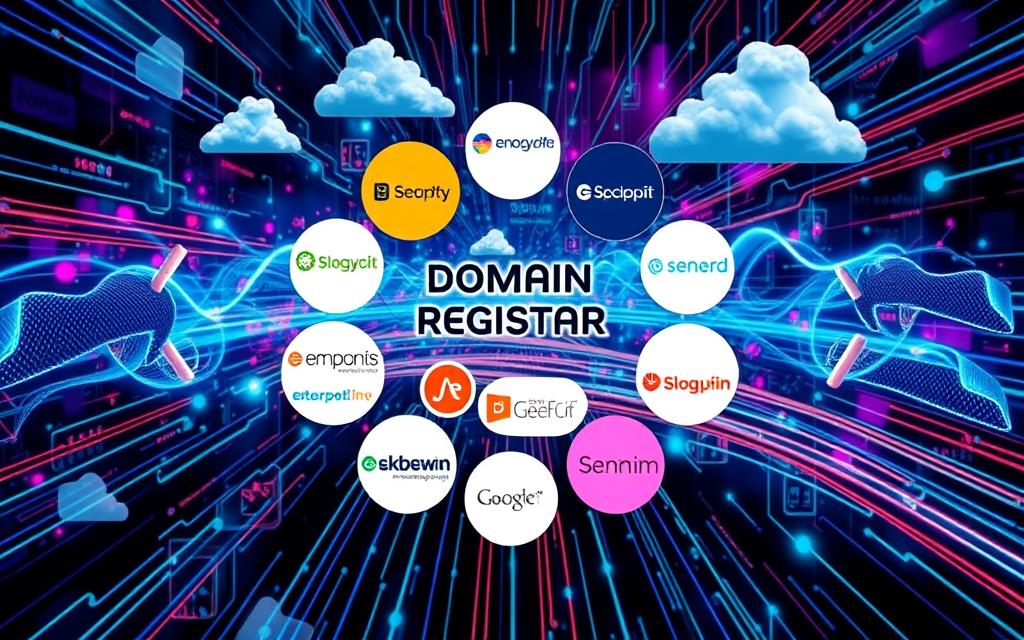
Understanding Domain Privacy Protection
In today’s digital world, keeping your privacy and security online is key. Domain privacy protection is a vital feature. It helps keep your personal info safe during domain registration.
What is Domain Privacy Protection?
Domain privacy protection, or WHOIS masking, is a service from domain registrars. It hides your personal details like name, address, and contact info. Without it, your info could be seen by cybercriminals or spammers.
Advantages of Using Privacy Protection
- It boosts website security by hiding your personal info from hackers.
- It lowers the chance of WHOIS masking, which can lead to spam and phishing.
- It makes the secure domain registration process safer, keeping your privacy intact.
- It protects your personal data, keeping your identity safe from theft.
Using domain privacy protection makes your online presence safer and more private. It lets you focus on your website without worrying about privacy issues.
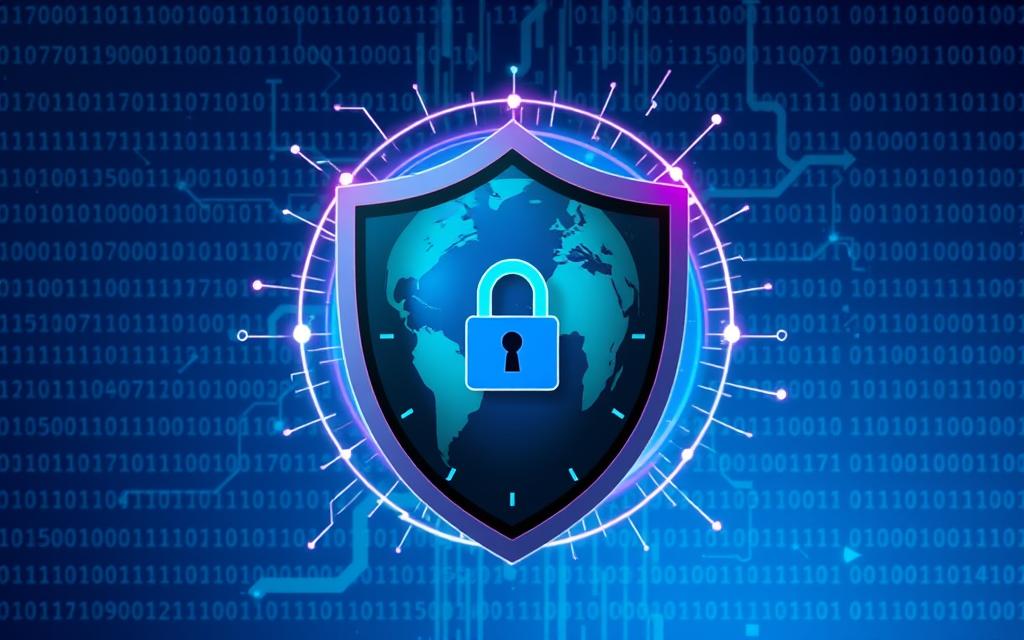
“Protecting your personal information is crucial in today’s digital landscape. Domain privacy protection is an essential tool for maintaining your online security and privacy.”
The Process of Domain Registration
Registering a domain name is key to having an online presence. It’s important to pick an ICANN-accredited registrar for a secure process. These registrars manage the global domain name system (DNS) and offer ICANN accreditation, DNS management, and secure domain registration services.
Step-by-Step Guide to Registering a Domain
- First, search for an available domain name that fits your brand or business.
- Then, pick a reliable ICANN-accredited registrar like GoDaddy, Namecheap, or Bluehost.
- Fill out the registration form with the right contact info and domain details.
- Make sure to choose the right domain extension (e.g., .com, .org, .net) for your needs.
- Think about adding domain privacy protection to keep your info safe.
- Double-check your order, then pay to complete the domain registration.
Common Mistakes to Avoid
- Not choosing an ICANN-accredited registrar can cause problems with DNS management and secure domain registration.
- Incorrect or incomplete contact info can lead to domain renewal and management issues.
- Not using domain privacy protection can make you vulnerable to spam and phishing.
- Forgetting to renew your domain can cause it to expire and become unavailable.
By following these tips and avoiding common mistakes, you can have a smooth and secure domain registration. This will help build a strong online presence.
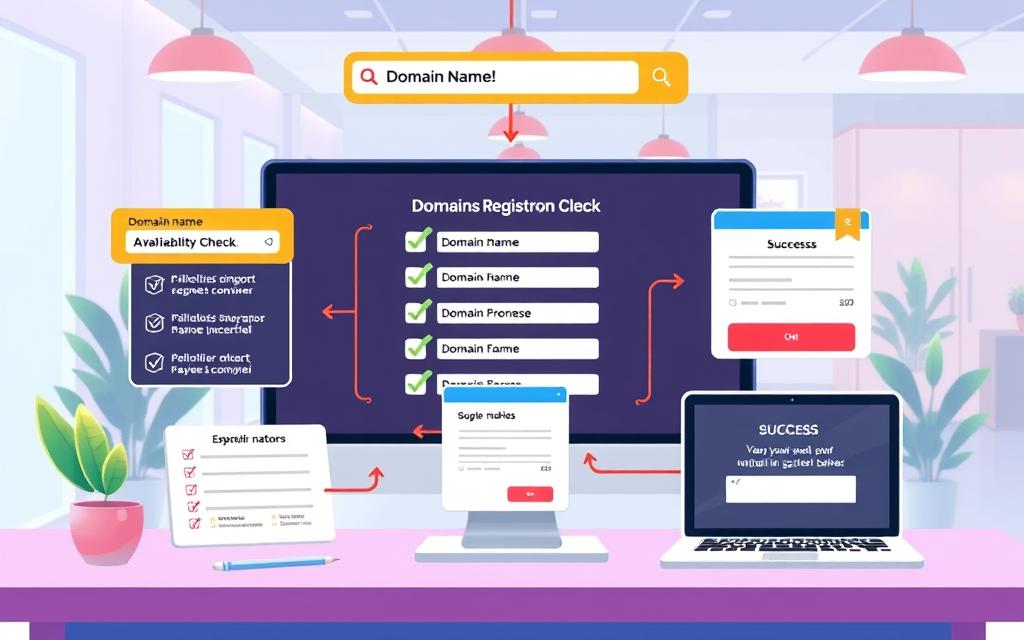
The Role of SSL Certificates in Domain Security
In today’s digital world, keeping your website safe is key for everyone. SSL (Secure Sockets Layer) certificates are a must for domain security. They protect your site and keep your visitors’ info safe.
Importance of SSL for Secure Domains
SSL certificates create a secure link between your website and visitors. This link keeps data like login info and credit card numbers safe. Using SSL boosts your website security and brand protection. It also makes your visitors trust you more.
How to Obtain an SSL Certificate
Getting an SSL certificate is easy. Many secure domain registration services offer it. Here’s how to get one:
- Choose a trusted SSL provider like Comodo, Let’s Encrypt, or Digicert.
- Pick the right SSL certificate type for you.
- Do the needed verification, which might ask for documents or a yes to the request.
- Put the SSL certificate on your web server as the provider tells you.
- Change your website’s DNS settings to use the SSL-enabled domain.
By following these steps, you make your domain safe with SSL. This boosts your website security and makes your visitors trust you more.

“SSL certificates are the foundation of web security, protecting sensitive data and building trust with your audience.”
What to Do After Registering Your Domain
Congratulations on getting your domain! Now, it’s time to use that secure domain registration. You’ll need to launch your website and set up email accounts. This will help you establish a strong online presence.
Launching Your Website
With your domain ready, it’s time to build and launch your website. Website security is key here. Work with your web team or DNS management experts to make sure your site is fast, mobile-friendly, and easy to use.
- Finalize your website design and content
- Ensure your site is mobile-friendly and fast-loading
- Implement robust website security measures, such as SSL certificates and firewalls
- Test your website thoroughly before going live
Setting Up Email Accounts
Setting up professional email accounts with your domain is also crucial. It boosts your brand’s credibility and helps with communication.
- Create email addresses that reflect your domain (e.g., info@yourdomain.com)
- Integrate your email accounts with a reliable email hosting service
- Configure email forwarding and autoresponders, if necessary
- Educate your team on best practices for secure email management
By taking these steps after secure domain registration, you’ll build a strong online presence. You’ll also manage your DNS management and website security effectively.

Managing Your Domain Settings
Keeping your domain’s settings in check is key for security and protection. You need to know how to access your domain control panel and manage your DNS settings. This ensures your online presence stays safe and stable.
Accessing Your Domain Control Panel
To start managing your domain, log into your domain registrar’s control panel. This interface lets you change your domain’s details, like contact info and DNS records. Most domain registrars have easy-to-use control panels for effective management.
DNS Management Essentials
- DNS records are vital for your domain’s online presence. They direct traffic and ensure your website and email work right.
- In your control panel, you can update DNS settings. This includes the A record and MX record, which are crucial for your domain’s functionality.
- Good DNS management fights cybersquatting. It stops others from using your brand name for their gain. Keeping your DNS current helps you stay in control of your online identity.
Knowing your domain control panel and DNS management is crucial. It boosts your domain’s security and stability. This also helps protect against threats like WHOIS masking.
The Risks of Neglecting Domain Security
In today’s digital world, keeping your domain safe is key. If you ignore domain security, your business faces many dangers. These include cybersquatting and trademark infringement. Without strong brand protection, your online image and reputation can suffer greatly.
Common Threats to Domain Security
There are several ways your domain can be breached:
- Cybersquatting: This is when someone registers a domain name very similar to your trademark to make money off it.
- Domain hijacking: This is when someone takes control of your domain without permission, often through trickery or security weaknesses.
- Domain name system (DNS) attacks: These are attempts to mess with the DNS, which turns domain names into IP addresses.
Consequences of Poor Domain Management
Ignoring domain security can cause serious problems, such as:
- Loss of brand reputation: Issues like cybersquatting can hurt your company’s image and trust with customers.
- Financial losses: Getting back a hijacked domain or fighting trademark infringement can cost a lot. Plus, you might lose money from downtime or damage to your reputation.
- Legal complications: Not protecting your trademark can make it tough to fight domain-related threats. This puts your business at risk.
To avoid these problems, it’s important to have strong cybersquatting prevention steps. Also, keep a close eye on trademark monitoring and focus on brand protection in your domain management plan.
Renewing Your Domain Registration
Keeping your domain registration secure is key for your online success. When your domain’s renewal date comes up, knowing the renewal rules and best practices is vital. This guide will help you keep your domain active and safe.
Understanding Renewal Policies
Domain registrars have different renewal rules. It’s important to know the specific rules for your registrar. Key things to look at include:
- Renewal period options: Many registrars let you renew your domain for several years, offering stability.
- Automatic renewal: Some offer automatic renewal, keeping your domain active without manual effort.
- Renewal grace periods: Registrars often give a grace period after the expiration date, allowing you to renew without losing your domain.
Tips for Managing Expiration Dates
Managing your domain’s expiration date well can prevent online disruptions. Here are some tips:
- Set reminders: Use calendar reminders or sign up for email alerts from your registrar to stay on top of your domain’s renewal date.
- Renew early: Renew your domain several months before it expires to avoid any issues.
- Verify your contact info: Make sure your registrar has the right contact details, including your email, for renewal notices.
- Consider auto-renewal: If your registrar offers it, turn on auto-renewal to avoid forgetting to renew and losing your domain.
By understanding renewal policies and managing your domain’s expiration, you can keep your secure domain registration, DNS management, and ICANN accreditation for a reliable online presence.
| Registrar | Renewal Period | Automatic Renewal | Renewal Grace Period |
|---|---|---|---|
| GoDaddy | 1-10 years | Available | 45 days |
| NameCheap | 1-10 years | Available | 30 days |
| Google Domains | 1-10 years | Available | 30 days |
Future Trends in Domain Registration
Technology keeps moving forward, and so does the domain registration world. We’re seeing big changes in website security and how domains are handled. One big trend is the use of stronger SSL certificates.
Emerging Technologies in Domain Security
Soon, domain registrars will add new security features. Think multi-factor authentication, biometric logins, and constant threat checks. These updates will make sure your online space is safe from many cyber dangers.
Predictions for the Domain Hosting Industry
The need for safe online spaces is growing fast. The domain hosting world will change a lot because of this. Experts think we’ll see more cloud-based domain management, making security easier to manage.
Also, artificial intelligence and machine learning will play a big role. They’ll help find and stop threats faster, keeping your digital stuff safe.








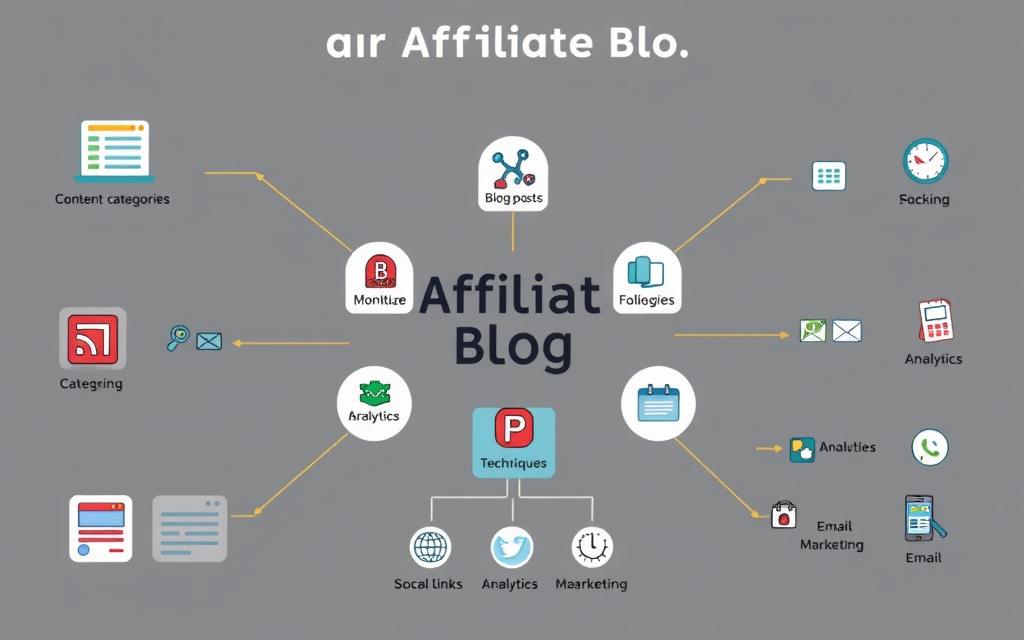

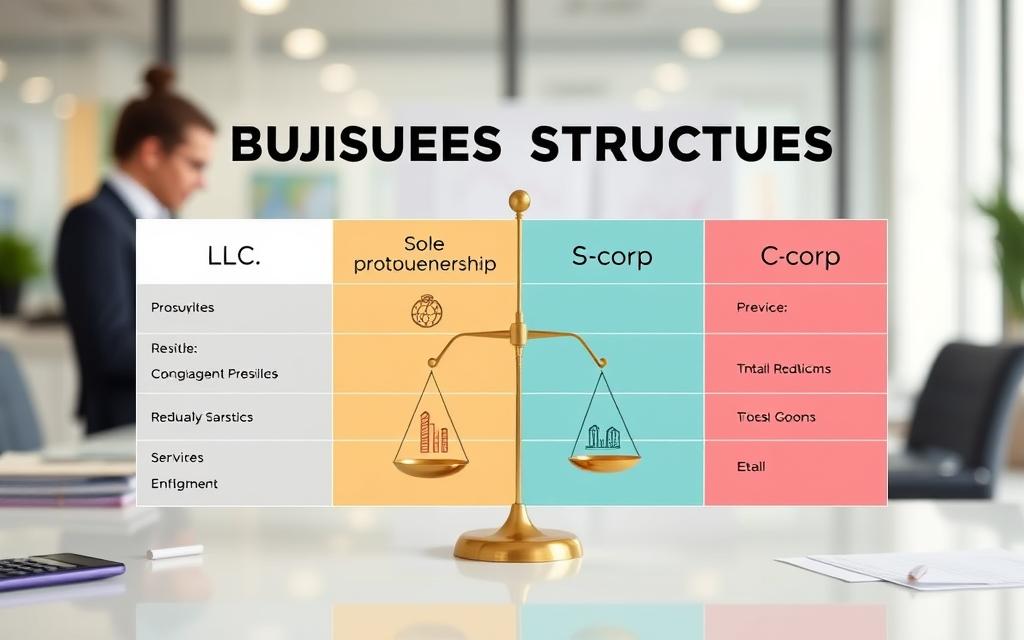

Leave a Reply